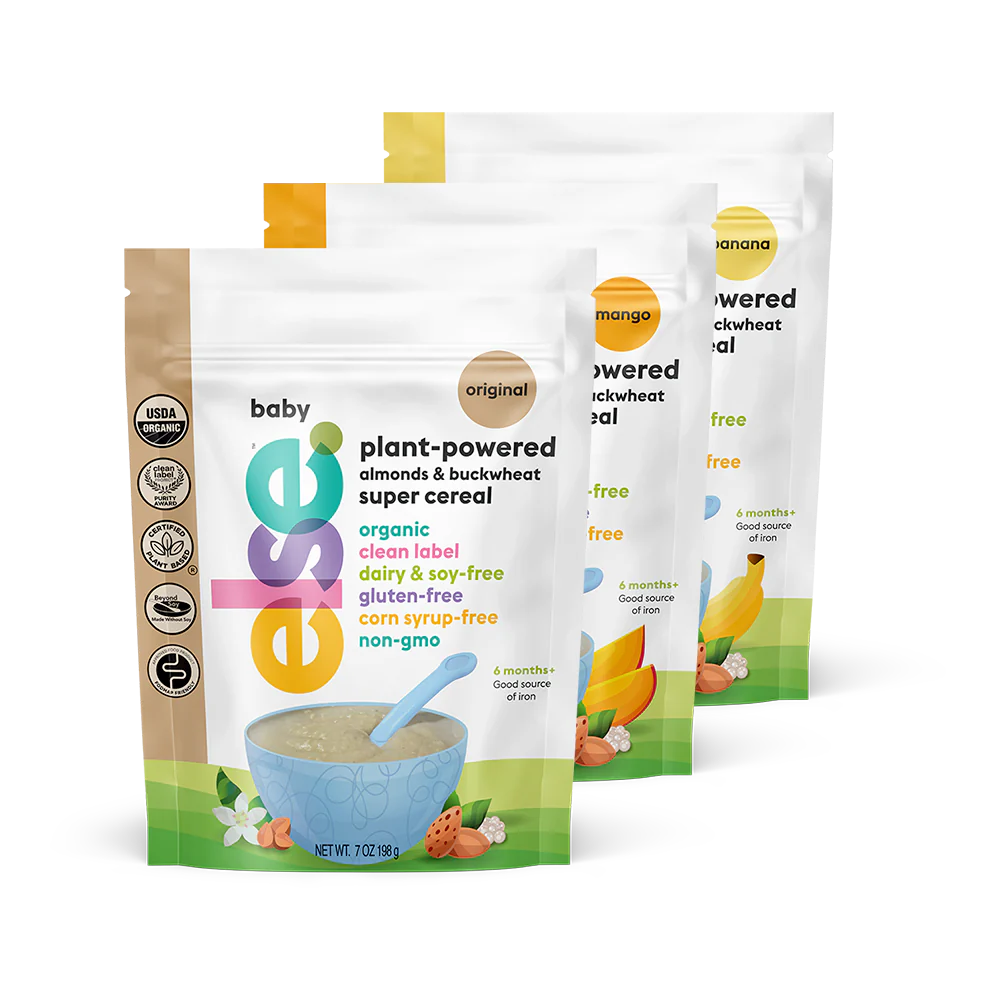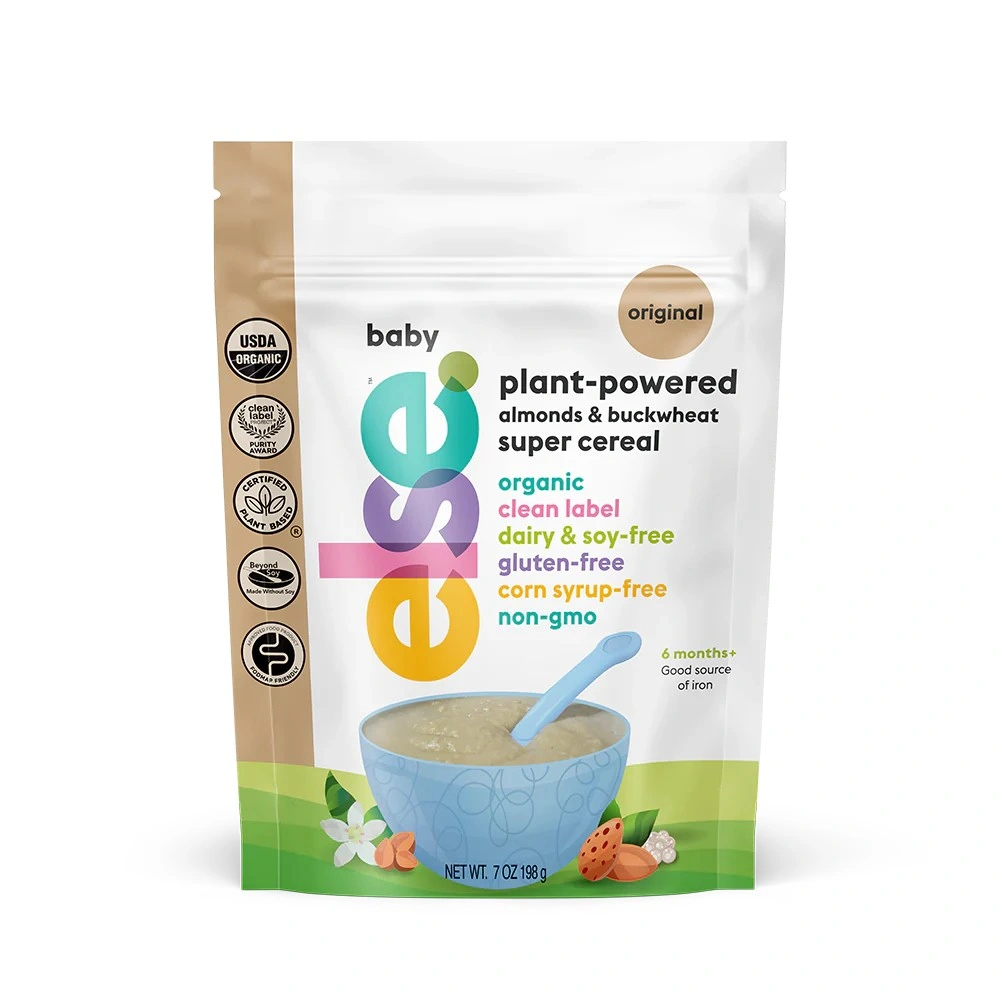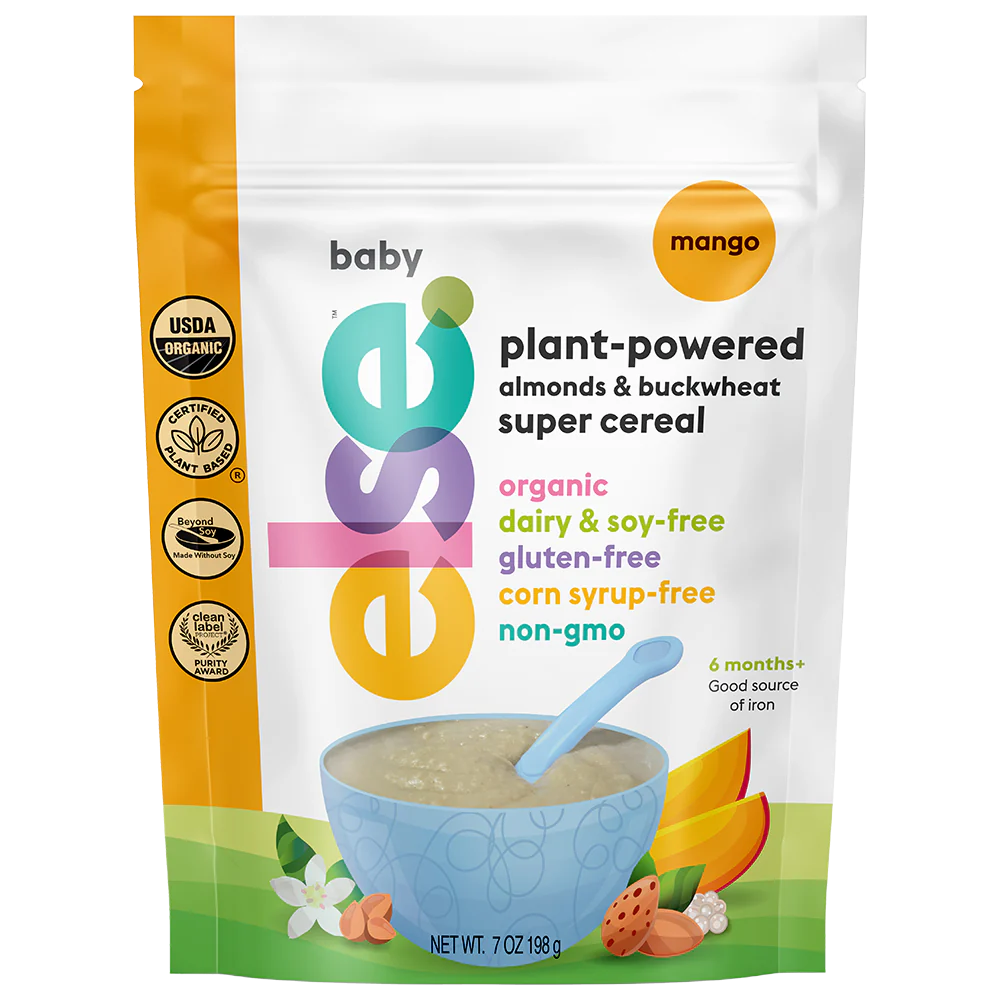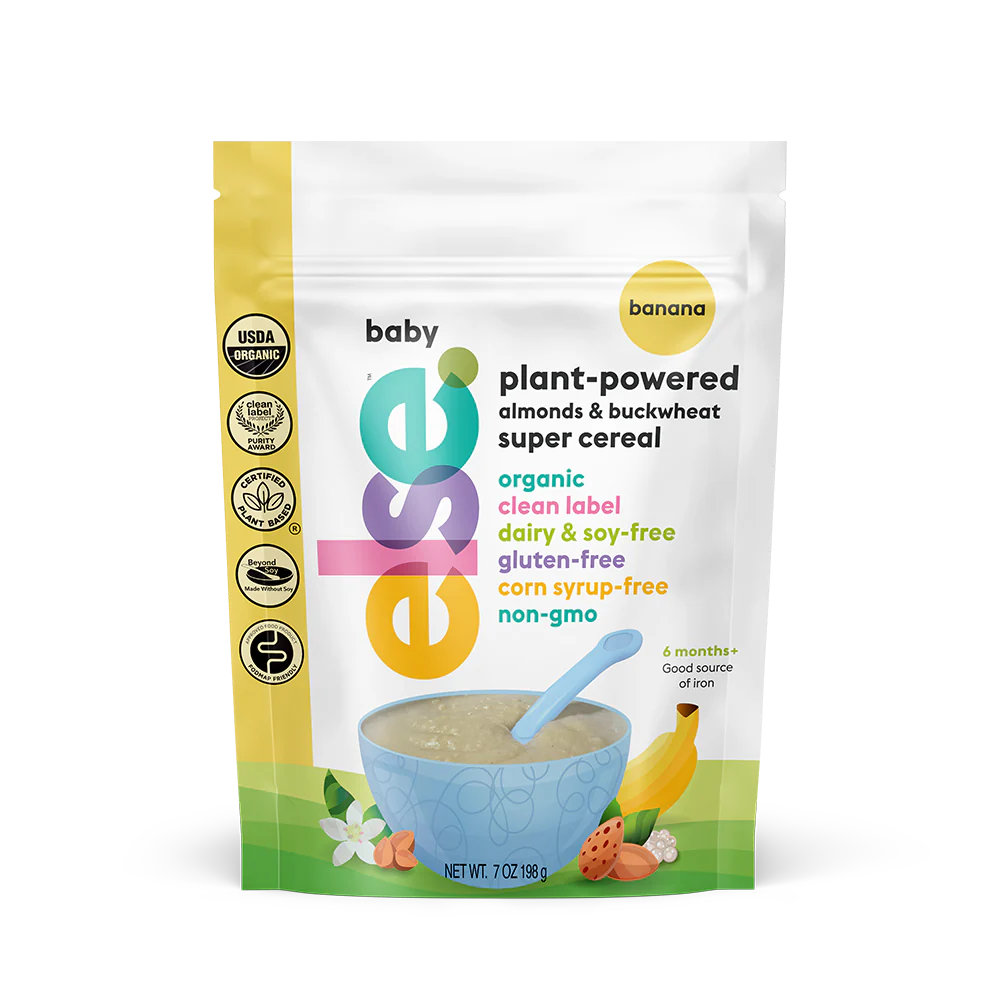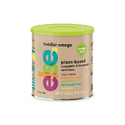Bridging Nutritional Gaps Across Ages in The US
Updated October 11, 2024

Across America, nutrition gaps are a common concern, stems from individuals not consuming adequate amounts of essential nutrients. In this article, we’ll be going over the importance of nutrition, how nutrition gaps happen, and who is affected the most.
So, whether you’re a parent of a baby or toddler or just curious about nutrition throughout your lives, you’ll get some good information to help you fill any gaps.
What Are Nutritional Gaps?
Nutrition gaps refer to the differences between the nutrients our bodies need and the nutrients we consume from food. These gaps can happen for a few reasons, including dietary choices, accessibility to nutritious foods, personal preferences, or cultural or religious practices.
While each of those reasons is very valid, they can cause issues like deficiencies or diseases when our bodies aren’t receiving the essential nutrients we need.
Nutrient Intake vs. Nutrient Absorption
A primary lack of nutrient consumption can cause nutrient deficiencies. Still, they can also occur from a lack of absorption. This means your body can’t absorb certain nutrients, even if you eat them.
If you or your baby are eating a well-balanced diet but still suspect a nutrient deficiency, check in with your healthcare provider to investigate further.
Nutrition Gaps in the USA
Each person’s nutrition status can be affected by various factors. Our environment, state, and cultural practices can increase or decrease our risk for nutritional gaps.
For example, in the USA, different regions have varying access to fresh produce, whole ingredients, and even clean water.
Food deserts are areas of the country with few grocers to offer fresh foods. This happens in rural parts of the country, densely populated cities, and suburbs. These food deserts are correlated with nutritional deficiencies, food insecurity and in childhood may lead to anemia and not fulfilling their full potential.
Nutrition Gaps and Cultural Contradictions
Cultural practices, deeply ingrained food traditions, and personal preferences have a tremendous impact on our nutritional choices. While such traditions might enrich our lives, they can also contribute to nutritional imbalances.
Consider families who follow vegetarian or vegan diets. They may be more vulnerable to nutritional deficiencies, particularly those involving vital elements such as iron and vitamin B12. However, it is important to highlight that finding these gaps does not necessarily necessitate a shift to meat consumption.
Numerous different dietary sources can deliver these essential elements. Parents and children can bridge these nutrient gaps without jeopardizing their dietary convictions. However, traveling on such a road can be difficult. Thus, obtaining the advice of a skilled dietitian can be quite beneficial in ensuring that all dietary requirements are satisfied appropriately.
How to Do a Comprehensive Nutrition Gap Assessment
Assessing and addressing nutritional gaps is the first step to promoting overall health and preventing deficiencies. A dietitian usually performs a comprehensive nutrition assessment. It involves an evaluation of the patient’s intake, lifestyle, and personal health needs.
Dietary Analysis
The first step in the assessment usually starts with dietary intake. This includes evaluating the types and amounts of foods and beverages consumed daily. A registered dietitian may ask many questions, ask you to recall everything you ate in a certain period, or even ask you to take a questionnaire or keep a food log.
By doing this, the dietitian can determine if you are meeting your daily nutrient requirements or if there are significant gaps in your diet that may lead to deficiencies.
Nutrient Intake Evaluation
During the dietary analysis, the dietitian focuses on specific nutrients of concern based on the person’s age, gender, and health status. For example, pregnant or lactating women have higher nutrient needs than others due to the demands of pregnancy and breastfeeding.
The dietitian compares the individual’s nutrient intake to recommended dietary allowances (RDAs) or adequate intake (AI) levels established by reputable organizations like the National Academy of Medicine. This helps identify nutrients that are consistently under-consumed or not meeting the recommended levels.
Lifestyle and Health Factors
Assessing lifestyle and health factors is also important to understand how various aspects of our lives may impact our nutrition. Physical activity level, stress, sleep patterns, and chronic conditions can influence nutrient requirements and absorption.
For instance, a highly active individual may require more energy and specific nutrients to support their physical demands. At the same time, stress or certain medications may affect nutrient absorption and utilization.
Anthropometric Measurements
Anthropometric measurements are tools used to assess specific physical characteristics, including weight, height, waist circumference, and body composition. These metrics are valuable indicators for monitoring overall health and ensuring a balanced nutrient intake.
For instance, deviations from expected growth patterns in children might signal potential nutritional deficiencies or challenges with nutrient absorption. Monitoring these measurements can guide timely interventions and support optimal health outcomes.
Blood Tests
In some cases, blood tests may be necessary to provide a more accurate assessment of nutrient status. Blood tests can measure the levels of specific vitamins, minerals, and other essential nutrients in the bloodstream. This information helps identify deficiencies or imbalances that may not be evident through dietary analysis alone.
Standard blood tests used in a nutrition gap assessment include:
- Iron levels (hemoglobin, ferritin) to assess iron status.
- Calcium and vitamin D levels to evaluate bone health.
- Vitamin B12 and folate levels to assess red blood cell production and nervous system function.
Personalized Recommendations
A registered dietitian can develop personalized dietary recommendations based on the nutrition gap assessment findings. These recommendations aim to bridge the identified nutritional gaps and meet the individual’s nutrient needs.
The dietitian may suggest adding foods rich in the identified nutrients or recommend dietary supplements if necessary. Additionally, they can help you create a balanced and nutrient-dense meal plan that aligns with your lifestyle and health goals.
Regular Follow-Ups
Nutritional needs can change due to growth, aging, lifestyle changes, and health conditions. Therefore, regular follow-up assessments are essential to monitor progress and adjust dietary recommendations accordingly.
A comprehensive nutrition gap assessment is not a one-time evaluation but a dynamic process that requires ongoing support and guidance from a registered dietitian. By addressing nutritional gaps proactively, you and your family can optimize your health, enhance your well-being, and reduce the risk of nutrient deficiencies and associated health issues.
Importance of Early Nutrition
The first 1000 days of life, starting at conception and extending to a child’s second birthday, are critical for growth and development. During this time, the body undergoes rapid changes, and proper nutrition is vital for laying a solid foundation for a child’s future health.
Adequate nutrient intake during this period supports the development of organs, brain function, immune system, and overall well-being.
Key Nutrients in the First 1000 Days
Several key nutrients play a crucial role in the development of babies and toddlers during the first 1000 days. Let’s explore some of these essential nutrients and their significance.
Iron
Iron is essential for brain development and the formation of red blood cells, which carry oxygen throughout the body.
Iron deficiency during early life can lead to anemia, impaired cognitive function, and compromised immune function.
Good sources of iron for babies and toddlers include iron-fortified cereals, lean meats, legumes, and leafy green vegetables.
Calcium & Vitamin D
Calcium and vitamin D work together to support the development of strong bones and teeth. Calcium is crucial for skeletal growth and mineralization, while vitamin D aids in the absorption and utilization of calcium.
Adequate intake of these nutrients during early life supports optimal bone health.
Foods like dairy products, fortified plant-based milk, exposure to sunlight (for vitamin D production), and leafy greens contribute to meeting these nutrient needs.
Omega-3 Fatty Acids
Omega-3 fatty acids, especially DHA (docosahexaenoic acid), are vital for brain development and cognitive function. They are essential structural components of brain tissue and play a role in visual acuity and neural signaling.
Consuming foods rich in omega-3 fatty acids during pregnancy and infancy has been linked to improved brain development in children.
Sources include fatty fish, walnuts, flaxseeds, and chia seeds.
Vitamin A
Vitamin A is essential for vision, immune function, and cell growth. It plays a role in maintaining the health of the eyes, respiratory tract, and gastrointestinal tract.
Adequate vitamin A intake during infancy is associated with reduced mortality risk, improved growth outcomes, and a lower risk of respiratory tract infections.
Foods like carrots, sweet potatoes, spinach, and liver are rich sources of vitamin A.
Vitamin C
Vitamin C is an antioxidant that supports immune function, collagen synthesis, and iron absorption. It is essential for tissue growth and repair, wound healing, and overall health.
Infants with higher vitamin C intake have shown a reduced risk of wheezing, asthma symptoms, and allergic diseases later in life.
Citrus fruits, berries, and bell peppers are excellent sources of vitamin C for babies and toddlers.
Age-Related Changes Affecting Nutrition
As each of us ages, our bodies undergo various changes that can impact nutritional needs and nutrient absorption. Understanding these age-related changes is crucial for tailoring nutrient intake and promoting overall health. Let’s explore some age groups and their specific nutritional requirements:
Infants and Toddlers (0-2 years)
During the first 1000 days of life from conception, the main focus is on providing adequate nutrition to support rapid growth and development. Breast milk or formula serves as the primary source of nutrients for infants, providing essential nutrients for immune support.
As babies transition to solid foods, gradually introducing a variety of nutrient-dense foods is important. Iron-fortified cereals, pureed fruits and vegetables, mashed beans, and soft meats are good options.
Children (2-12 years)
Children require a balanced diet that provides the necessary nutrients for healthy growth and development. Calcium, vitamin D, iron, and zinc are critical during this stage to support bone health, brain function, and immune system development.
Encouraging a diverse diet with whole grains, fruits, vegetables, lean proteins, and dairy products is essential.
If you’ve got a picky eater on your hands, you may want to consider including a daily multivitamin to close any potential gaps.
Adolescents (13-18 years)
The teenage years are known for their growth spurts and increased nutritional needs. Adequate calcium intake is vital for optimizing peak bone mass. Iron requirements are higher, especially for teenage girls, due to the onset of menstruation.
With teens, it’s important not to force any type of diet, but instead offer them balanced meals and nutritious foods at any chance you get. These should include lean proteins, whole grains, colorful fruits and vegetables, and healthy fats is important during this period of rapid growth.
Adults (19-64 years)
Adults require a well-rounded diet the provides essential nutrients for maintaining health and preventing chronic diseases. Nutrient needs may vary based on factors such as physical activity level, body weight, and specific health conditions.
Adequate intake of vitamins, minerals, protein, fiber, and healthy fats is essential for supporting immune function, cardiovascular health, bone health, and cognitive function.
Older Adults (65+ years)
As we get older, our metabolism may slow down, and our appetite and nutrient absorption may decrease. Older adults may require fewer calories but still need the same or even higher levels of certain nutrients, such as calcium and vitamin D, to maintain bone health. Adequate protein intake is also important for preserving muscle mass and function.
If you are a caregiver, encourage nutrient-dense foods and consider dietary supplements under healthcare professionals' guidance if they need help meeting their nutritional needs.
Why Do Different Age Groups Have Different Nutritional Values?
The nutritional needs of individuals vary across different age groups due to the diverse stages of growth, development, and physiological changes that occur throughout life.
- Infants and toddlers rapidly grow and develop, requiring specific nutrients for brain and organ development.
- Children and adolescents need ample nutrients to support growth spurts and bone development.
- Adults have more stable nutrient requirements, focusing on maintaining overall health and preventing chronic diseases.
- Older adults face age-related changes that may affect nutrient absorption and metabolism, necessitating adjustments to their diet to meet their specific needs.
How To Fill Nutritional Gaps
Filling a nutritional gap involves making informed dietary choices that aim to meet the specific nutrient needs of our bodies on our age, lifestyle, and health status.
Colorful, Balanced Diet
A colorful and balanced diet is the foundation of optimal nutrition. Including a wide variety of fruits, vegetables, whole grains, lean proteins, and healthy fats in our daily meals provides an array of essential vitamins, minerals, and phytonutrients.
- Fruits and vegetables are rich sources of vitamins, minerals, and antioxidants. Aim to fill half your plate with colorful fruits and vegetables at every meal. Choose a variety of colors to get a diverse range of nutrients.
- Whole grains: Opt for whole grains like quinoa, oats, and whole wheat, which provide fiber, B vitamins, and minerals.
- Lean proteins: Include sources like poultry, fish, beans, lentils, tofu, and lean cuts of meat to get adequate protein, iron, and zinc.
- Healthy fats: Incorporate sources like avocados, nuts, seeds, and olive oil to obtain essential fatty acids, which support heart health and brain function.
Use Alternatives
If you have specific dietary restrictions or food preferences, finding suitable alternatives can help you fill nutritional gaps. For example:
- Plant-based alternatives: If you follow a vegetarian or vegan diet, explore plant-based protein sources like tempeh, seitan, edamame, and plant-based protein powders.
- Dairy alternatives: If you are lactose intolerant or prefer non-dairy options, try fortified plant-based drinks like Else, which is nutritionally tailored for this specific age group and richer in protein and important micronutrients.
- Gluten-free options: For individuals with gluten sensitivity or celiac disease, opt for gluten-free whole grains like quinoa, brown rice, and millet.
Supplements If Needed
While a balanced diet is an ideal way to obtain nutrients, certain situations may warrant using dietary supplements.
Dietary supplements can benefit anyone who has difficulty meeting their nutrient needs through food alone, has increased nutrient requirements due to specific life stages or health conditions, or are at risk of certain deficiencies.
Remember, supplements are not a substitute for a healthy diet but can complement it when used wisely and as part of a comprehensive approach to meeting nutrient needs.
Conclusion
Nutrition plays a pivotal role in every stage of life, from the critical first 1000 days of a child’s development to the older years. Identifying and addressing nutritional gaps is essential for promoting optimal health and well-being across different age groups. A balanced and varied diet, enriched with nutrient-dense foods, is the cornerstone of good nutrition.
For individuals of all ages, staying informed about age-related changes and adjusting dietary choices accordingly can help maintain good health and prevent nutrient deficiencies.
Remember, nutrition is not a one-size-fits-all approach; personalized dietary recommendations can significantly promote overall well-being.





